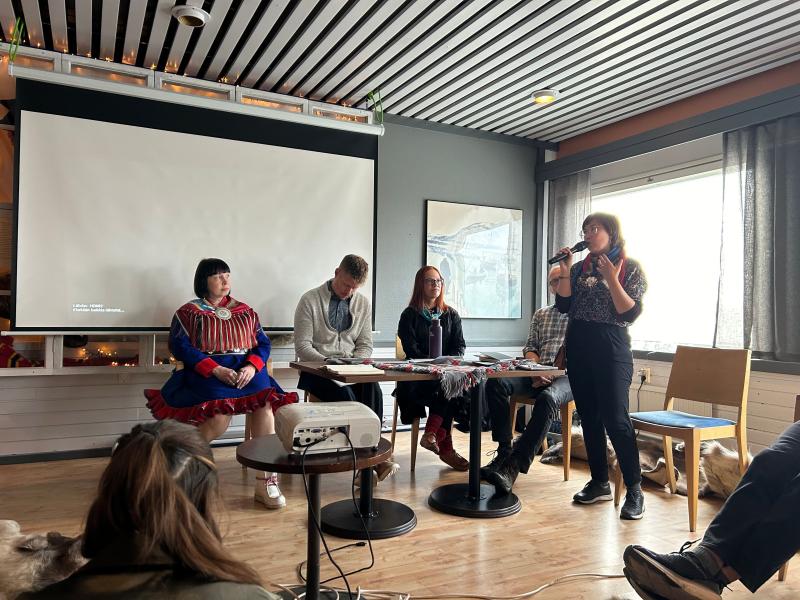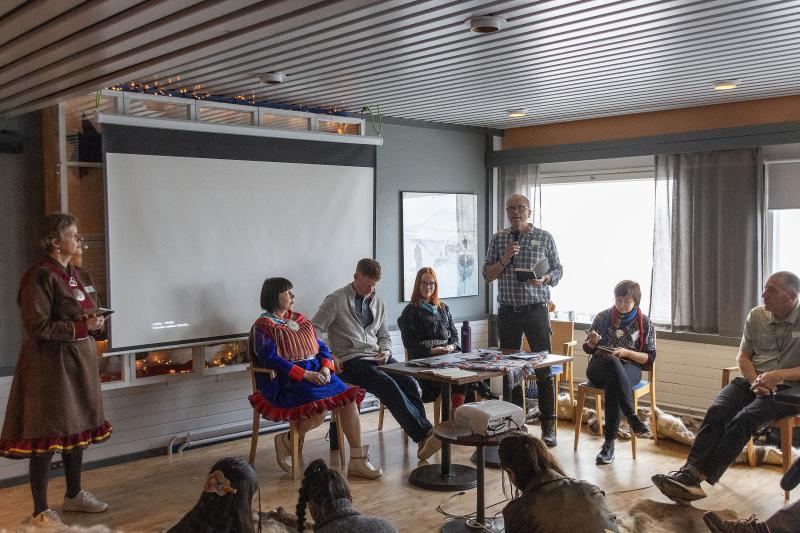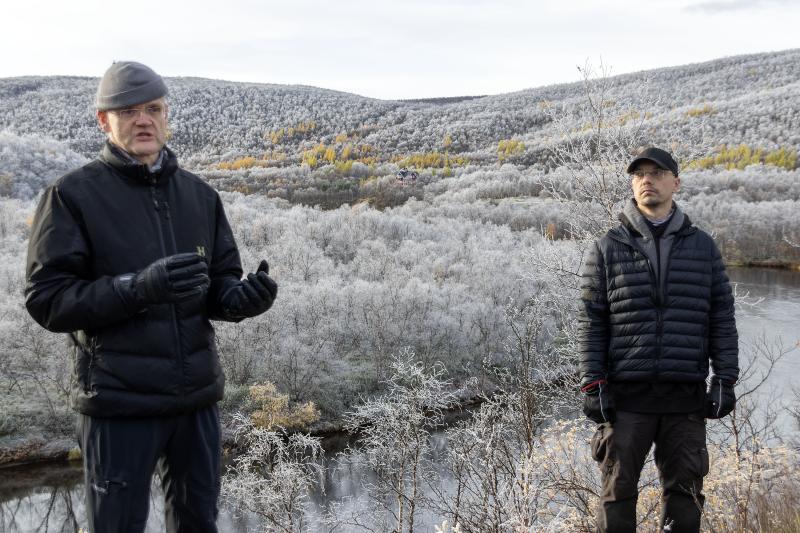RecoSal participated in Indigenous Salmon Research Symposium
The RecoSal project was a co-organizer of and participated in the Indigenous salmon research symposium in Utsjoki on October 3rd and 4th. The research symposium main organizers were UiT The Arctic University of Norway (the Sharing our knowledge project) and the Saami Council.
At the session on Ethics in Sami and Indigenous Salmon Research and Management practices, RecoSal research project members Associate Professor Camilla Brattland (UiT) and Research Professor Juha Hiedanpää (Luke) participated. Two new policy briefs from the project were presented and discussed with the participants at the panel. The policy briefs describe the process towards establishing a Deatnu salmon Living Lab with participants from academia, local knowledge holders and policy makers from both sides of the border river.
The additional participants at the panel were Professor Rauna Kuokkanen, University of Lapland, who presented the new Ethical guidelines on Sami research and president of the Sami Parliament Pirita Näkkäläjärvi, as well as Assistant Professor Chad Walker, Dalhousie University, Canada. The presentations and discussions centred on the challenges of community engagement in salmon research, where the concepts of free prior and informed consent and how research projects such as the RecoSal project are consented to by locals and by Sami organizations and communities was a key topic of discussion.
Pirita Näkkäläjärvi, held the opening speech at the Indigenous Salmon Research Symposium. In the speech, she talked about how salmon is the hidden gem of the lives of the river Sami. She described how the multiple factors of climate change, environmental pollution, and also coastal fisheries, salmon lice and disease occurring on the coast of Norway contributes to the reduction of Atlantic salmon in the Deatnu watershed. She emphasized that solutions to future challenges must take into account both Sámi traditional knowledge and scientific knowledge as unified sources of knowledge. Read about this and other updates from the symposium on the International Indigenous Salmon Peoples Network Facebook page.
The RecoSal project also organized a river walk with Research Professor Jaakko Erkinaro (Luke) and local fisher and chairman of the Utsjoki fishery cooperative Hans Pieski. Erkinaro explained the precarious state of the salmon stocks while also describing the spawning grounds of the part of the Utsjoki river where the participants were gathered. An introduction to the long-term research project on salmon pedigree at this particular location of the river was provided by Pieski and Erkinaro, both participating in the project. A lively discussion on the status of the stocks, salmon fishing ban, and possible ways out of the dire situation followed. The discussion was covered by the Sámi news channel and YLE Sápmi.
RecoSal project also co-organized a future visions workshop together with the MARGISTAR project where 23 participants discussed future visions of the Deatnu - Tana - Teno watershed together. The workshop results will be forthcoming in a third policy brief from the RecoSal project.




